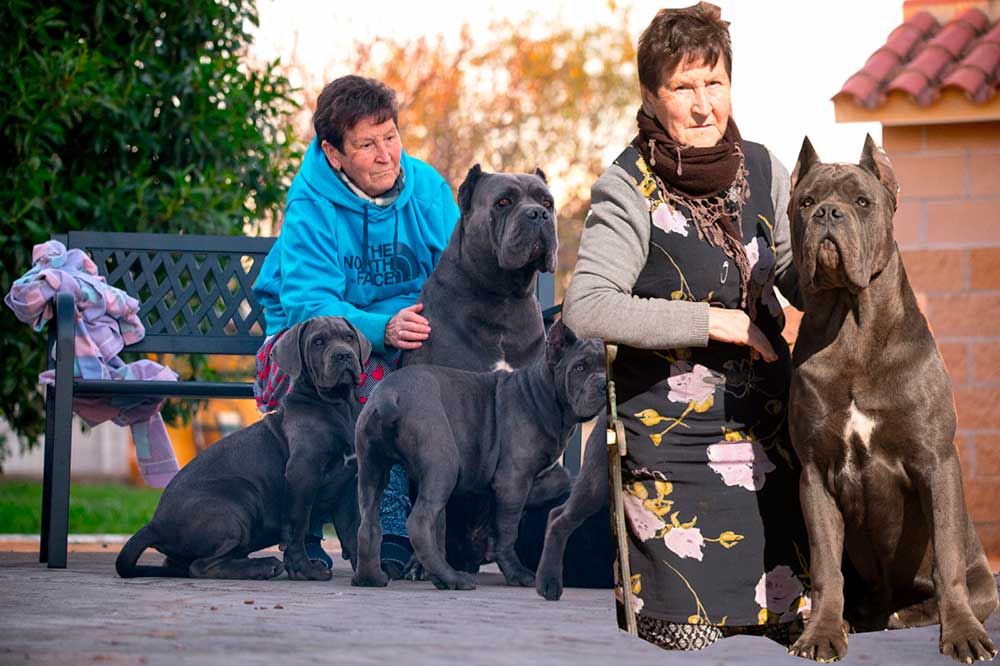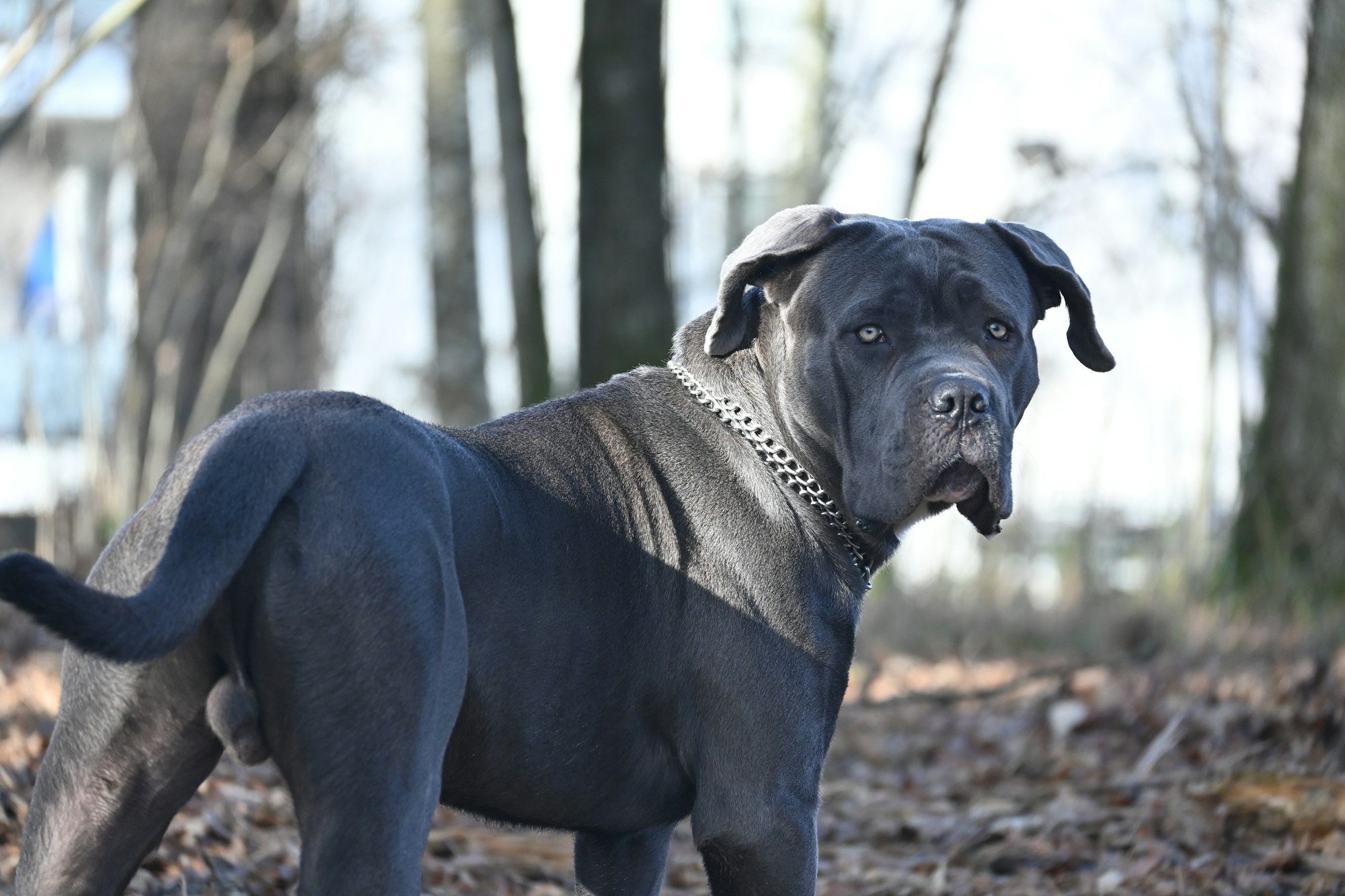Dog
Top Health Issues In Cane Corsos: A Must-Know Guide For Dog Owners
Common Health Problems in Cane Corsos
The Cane Corso is an Italian Mastiff that is robust, devoted, and regal. While these canines are renowned for their power and intellect, they can also experience certain health concerns and genetic issues. Responsible proprietors should be cognizant of these problems and be ready to take action if they occur. This article will offer a synopsis of Cane Corso’s health concerns and predicaments, including their prevalent disease risks, the significance of preventative care, and pointers for handling any issues that may arise.
Usual Well-being predicaments in Cane Corsos
The Cane Corso is a substantial, potent breed of dog that was originally bred for hunting, safeguarding, and as a watchdog. As with any breed, the Cane Corso can be afflicted by various customary health predicaments. It is vital for potential proprietors to have knowledge of these concerns so they can be ready to attend to their pets if the need arises.
The most prevalent health problems for a Cane Corso are hip and elbow dysplasia. This refers to a condition in which the joints have an irregular structure, leading to discomfort and difficulties in movement. It is crucial for owners to be vigilant for indications of this condition, such as limping, struggles in standing up, and issues with walking. This can be averted through regular physical activity and a wholesome diet.
The Cane Corso is also susceptible to cardiovascular issues, including cardiomyopathy and arrhythmia. Cardiomyopathy is a situation in which the heart muscle diminishes in strength, potentially leading to heart failure. Arrhythmia, on the other hand, denotes an abnormality in heart rhythm, and can stem from various factors, including genetics. It is vital to undergo recurring health assessments to supervise the cardiac well-being of a Cane Corso.

Additionally, the Cane Corso is inclined to developing dermal allergies. These can be triggered by various environmental elements, such as dust particles and pollen. Manifestations of an allergic reaction can encompass redness, itchiness, and hair loss. It is pivotal to pinpoint the cause of the allergy and address it promptly.
Lastly, the Cane Corso is susceptible to ocular problems. Cataracts, glaucoma, and progressive retinal atrophy are the most usual eye predicaments. Cataracts can result in a milky or hazy appearance in the eye, whereas glaucoma can cause discomfort and vision impairment. Progressive retinal atrophy can also lead to vision loss. Regular eye evaluations are imperative in order to monitor any changes in the eyes.
As an overall assessment, the Cane Corso is a robust and thriving breed of dog. Nevertheless, it is crucial for owners to have awareness of the common health issues that can impact the breed, so they can be ready to care for their pet if necessary. With adequate care and attention, the Cane Corso can maintain a lengthy and contented existence.
Grasping the Inherited Elements of Cane Corso’s Health Concerns
The Cane Corso is an Italian breed of a substantial dog that is renowned for its vigor, loyalty, and intellect. Unfortunately, akin to most other breeds, the Cane Corso is inclined to certain health issues. To gain a better understanding of these health concerns and the hereditary aspects related to them, it is essential to examine the breed’s history and the varied genetic components that can contribute to the development of these problems.
The Cane Corso lineage was developed in Italy during the 19th century as a working dog that was employed to protect property and livestock. This breed is a combination of the Mastiff and the Segugio Italiano. The lineage is characterized by its substantial size and robust physique, and it possesses a concise, rough coat that is commonly gray, black, or brindle.
The Cane Corso is susceptible to numerous hereditary health problems, many of which have a connection to its size and musculature. Frequent health issues include hip dysplasia, shoulder osteochondrosis, elbow dysplasia, and heart abnormalities. Hip dysplasia is a condition in which the hip joints develop incorrectly, resulting in pain and lameness in the impacted joint. Shoulder osteochondrosis is a degenerative ailment that can induce lameness and pain in the shoulder joint. Elbow dysplasia is an inherited disorder in which the elbow joint doesn’t develop properly, leading to arthritis and pain in the impacted joint. Heart abnormalities are common in the Cane Corso and can affect the valves, heart walls, or the heart’s electrical system.
These health concerns often result from a combination of genetic and environmental factors. For instance, hip and elbow dysplasia are influenced by a blend of genetic and environmental factors, such as diet and exercise. While it’s impossible to guarantee that your Cane Corso won’t develop any of these health problems, it’s crucial to be aware of the risk factors and take measures to minimize them. This includes providing your Cane Corso with a well-balanced diet, regular exercise, and routine veterinary check-ups. By doing so, you can help ensure that your Cane Corso remains healthy and content for many years to come.

The Role of Nutrition in Preventing Cane Corso Health Problems
A nutritious diet is crucial for the overall health and well-being of any canine, including the Cane Corso. This sizable, active breed requires a well-rounded diet that keeps them energized and nourished. A diet that’s abundant in vital nutrients, vitamins, minerals, and antioxidants can significantly reduce the likelihood of various health problems commonly observed in Cane Corsos.
The Cane Corso is a large breed that can weigh up to 110 pounds, so they require ample high-quality protein to sustain their strong muscle mass. They also need a sufficient amount of healthy carbohydrates, healthy fats, and leafy vegetables to keep them energized and in good shape. A diet that’s high in quality protein and low in grains can aid in the prevention of joint issues, such as hip and elbow dysplasia. It’s also essential to provide the appropriate balance of calcium and phosphorus in their diet. This will assist in preventing bone and joint problems and ensure the strength and health of their bones.
In addition to offering a diet rich in essential nutrients, it’s crucial to provide plenty of physical activity to keep the Cane Corso healthy and fit. This breed necessitates a significant amount of exercise and can benefit from regular strolls, playtime, and visits to the dog park. Exercise will help maintain their weight, which can in turn prevent health problems associated with obesity.
Lastly, supplying a diet that’s devoid of unhealthy additives and preservatives can help prevent a broad range of health problems. Seek out dog food that’s crafted with natural ingredients and doesn’t include any artificial coloring, flavors, or sweeteners. This will decrease the risk of food allergies, digestive ailments, and skin issues.
Overall, a nutritious diet is paramount for the long-term health and well-being of the Cane Corso. A diet that’s rich in high-quality protein, healthy fats, and leafy vegetables, combined with regular exercise, can play a vital role in averting a wide range of health issues in this large, active breed.
The Hazards of Overfeeding Cane Corso’s
Cane Corso’s are a large and formidable breed of dog, and accordingly, it is vital to provide them with an appropriate amount of nourishment to preserve their well-being and fitness. Overindulging can pose a significant problem and can result in a wide array of health complications.
The most prevalent risk related to excessive feeding is obesity. This can contribute to an assortment of health issues, including problems with the joints and bones, as well as an elevated vulnerability to heart and respiratory ailments. Additionally, obesity can impede the dog’s ability to engage in proper exercise, resulting in further health complications.
Another hazard linked to overfeeding is gastrointestinal problems. When dogs consume a surplus of food that exceeds their capacity, it can cause an upset stomach. This can lead to discomforting effects such as vomiting and diarrhea, which can subsequently cause additional health issues.
Lastly, overfeeding can also heighten the risk of pancreatitis. This condition involves inflammation of the pancreas, bringing about severe abdominal pain and potentially even fatality if not treated promptly.
It is imperative to ensure that your Cane Corso receives an appropriate quantity of nourishment. Consult your veterinarian to ascertain the ideal amount of food for your dog’s size, age, and level of activity. It is also crucial to avoid excessive treats and table scraps. Additionally, providing your dog with ample access to water and regular exercise is essential. Taking these measures can help guarantee the health and happiness of your Cane Corso.

Common Indications of Ailment in Cane Corsos
Cane Corsos are a large breed of dog with a lengthy, muscular physique and a distinguishable appearance. They are devoted and affectionate companions, but like all dogs, they can fall ill from time to time. It is crucial to be familiar with the typical signs of illness in Cane Corsos to enable swift action, if necessary.
The most common indicators of illness in Cane Corsos encompass diminished appetite, lethargy, retching, diarrhea, coughing, a runny nose, and alterations in behavior. If your Cane Corso exhibits any of these symptoms, it is important to promptly seek veterinary attention.
Diminished appetite is a prevalent indication of illness in Cane Corsos. If your dog displays disinterest in food or consumes less than usual, it could point to an underlying health issue. Lethargy is another symptom that may indicate illness. If your Cane Corso is sleeping more than usual or appears fatigued and lacking energy, it could be indicative of an infection or another problem.
Retching and diarrhea are additional standard signs of illness in Cane Corsos. If your dog is vomiting or experiencing diarrhea, it is essential to consult a veterinarian to exclude any underlying issues. Coughing and a runny nose can also be indications of infection or other ailments. If your Cane Corso is coughing or has a runny nose, it is prudent to have them examined by a veterinarian.
Finally, alterations in behavior can be an indication of illness in Cane Corsos. If your Cane Corso behaves differently than usual, such as displaying increased aggression or reduced activity, it is advisable to have them assessed by a veterinarian to rule out any underlying health problems.
It is crucial to recognize the common signs of illness in Cane Corsos to enable prompt action, if necessary. If any of the symptoms mentioned above are observed, take your Cane Corso to the veterinarian for assessment.
The Advantages of Vaccinations for Cane Corsos
Vaccinations form an integral component of any pet’s healthcare regimen, and Cane Corso dogs are no exception. Vaccinations serve to safeguard against numerous serious, and potentially life-threatening, diseases, making it imperative to ensure that your Cane Corso remains up to date with all of their vaccinations. Administering vaccinations to your Cane Corso can aid in preserving their well-being and warding off illnesses.
The most prevalent inoculations for Cane Corsos are rabies, canine distemper, canine parvovirus, canine adenovirus, and bordetella. Rabies is a virus that spreads through the spit of infected animals and is lethal to humans, so it is particularly crucial to safeguard your Cane Corso with a rabies vaccine. Canine distemper, canine parvovirus, and canine adenovirus are all grave and communicable viruses that can lead to severe sickness and even demise in dogs. The Bordetella vaccine aids in shielding against bordetella bronchiseptica, a bacterial infection that can cause severe respiratory illness in dogs.
Immunizing your Cane Corso can also support the protection of other animals. Vaccines assist in diminishing the transmission of contagious diseases, and by vaccinating your dog, you are assisting in safeguarding other animals against infection. This is particularly important for animals that come into contact with other animals, such as in a kennel or doggy daycare environment.
Lastly, immunizing your Cane Corso can help safeguard your pet from perilous illnesses and save you money in the long term. Vaccines can help avoid costly veterinary bills arising from the management of preventable illnesses, so it is essential to keep your Cane Corso up to date on all of their vaccines.
Vaccinating your Cane Corso is a vital component of maintaining their health and happiness. Vaccines can aid in the protection of your pet from hazardous and contagious illnesses, assist in safeguarding other animals, and save you money in the long run. Remember to consult your veterinarian regarding the appropriate vaccines for your Cane Corso and ensure they are kept up to date on all their vaccinations.



